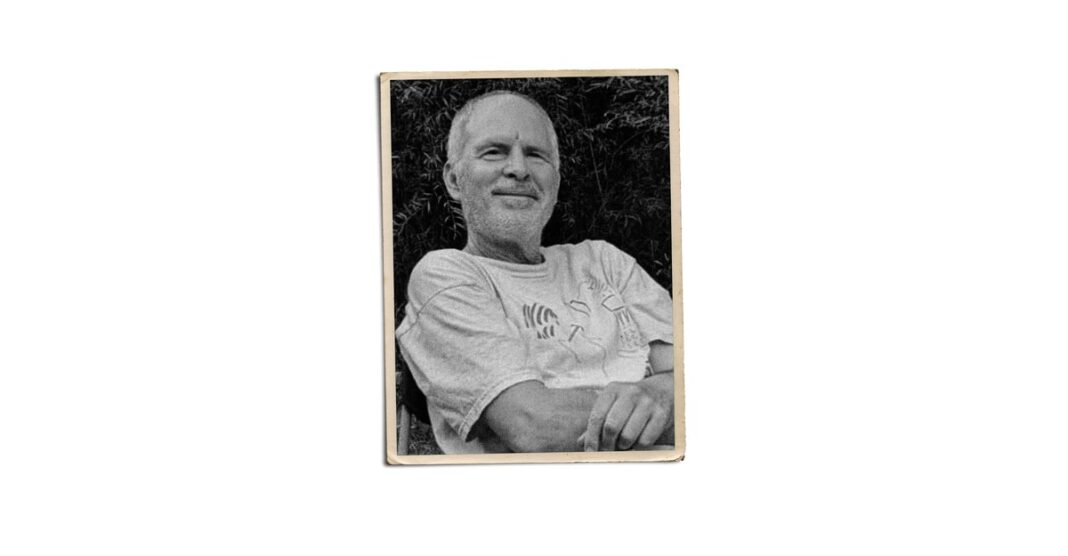The last time I saw my husband, Keith, was on November 26. He was lying on a filthy mattress on the floor of a darkened room and could barely look at me. We had spent 51 days together as Hamas’s hostages after being violently abducted from our home on October 7. I had been told earlier that day that my name was on the list; I was to be released and sent back home to Israel. Keith was to be left behind.
My long journey out of Gaza was filled with fear and sadness. I was sure our son had been murdered on October 7 in Kibbutz Kfar Aza, where we lived. The Hamas terrorists had been telling us throughout our captivity that Israel had been destroyed; I didn’t know what I would find. When I finally arrived at the border, I was told that all four of my children were waiting for me in the hospital. The attack on Kfar Aza had killed 64 people, and another 19 had been taken hostage, but my son had miraculously survived. I looked up and saw the moon for the first time in 51 days and screamed with joy and relief that he was alive and I was free.
I spent my first night of freedom in the hospital with my three daughters. I slept for perhaps an hour—I was in shock, and adrenaline was coursing through my body. I had lost 20 pounds and was weak and sick. I could not get my head around the fact that I had been separated from Keith, my husband of 43 years and my constant companion. Every day since—for nearly 300 days—I have been fighting for his release with every ounce of my being.
I think about Keith all the time, but I feel a particular pang whenever I drink water, when I take a shower, when I eat something delicious. As a hostage in Gaza, these are not things I could do. The most frustrating part is that I don’t know anything about Keith’s condition: Is he alone? (I’d love for someone to tell me that he’s not.) Is he sad, or crying? Is he in a tunnel with no oxygen? Is he sick or being tortured? Has he eaten any food at all today? Is he alive?
Keith is an American citizen. He was born and raised in Chapel Hill, North Carolina—also the hometown of James Taylor, his favorite singer. In his early 20s, he moved to Israel, where we met and started a life together. I was a nursery-school teacher, working with the children of the kibbutz, and Keith was an occupational therapist who was working for a pharmaceutical company. Our entire lives centered on supporting each other and our community, nourishing the next generation with family time and instilling the values of respect, integrity, and acceptance of the other in our four children and five grandchildren.
Keith is the kindest, most gentle man you could ever meet. He makes friends wherever he goes and is universally loved by people and animals. Thirty years ago, Keith learned Arabic so that he could talk with the Palestinian workers on the kibbutz, whom he swiftly befriended. A lifelong vegetarian, he held fast to his values in captivity. He wouldn’t even eat a few tiny morsels of chicken when the terrorists gave us more than our standard daily rations of half a pita or a few bites of plain rice.
We are both lifelong peacemakers and activists. That’s one reason what happened to us and to our community was so shocking.
On the morning of October 7, when the alarms sounded, we locked ourselves in our safe room. There were terrifying explosions and screams, and then suddenly 15 gun-wielding terrorists walked into our home, through a door we’d thought was locked. Keith put his head on his knees and covered his head with his arms; they fired a bullet through his hand and blood was everywhere. I screamed with a force I had never known before. Soon, the terrorists dragged us to Keith’s car. All around us were scenes of fire, violence, and death. I couldn’t stop thinking about my son, who lived just a few minutes away. How could he survive this?
We arrived in Gaza and found people celebrating everywhere. We were bleeding and in shock. I couldn’t believe anyone could be happy to see two people in their 60s in such a state. The terrorists led us to a tunnel shaft, and we climbed down a rickety ladder into one of the scariest places I’d ever seen. It was damp and we could hardly breathe. There were electric lights on the path, which was a relief, because I’m scared of the dark. Keith’s ribs were broken and his hand was still bleeding. Within a few hours, they moved us aboveground to a room in an apartment with three yoga mats on the floor. The window was covered and we were not allowed to move. It was absolutely filthy.
Keith and I were moved 13 times while I was in Gaza, from darkened rooms in private homes to terrifying tunnels without oxygen, light, or sanitation. We were treated with pure brutality, and knew we could die at any moment. We were not seen as human beings. We were starved while our captors ate. We were beaten, humiliated, and kept in disgusting conditions with no way to take care of our basic hygiene or survival needs. We depended on terrorists for every sip of water as they guarded us with their guns and threatened to kill us if we spoke or moved around. There were times I wanted to die.
And there were many times I thought I would die. The buildings shook and walls crumbled with the launch of every missile. It seemed like the terrorists were firing them from our building. Many times a day, we heard the bell of a mosque and then, a moment later, the launch of a missile from the same direction. And, of course, we heard the Israel Defense Forces bombing close by. Between the missiles, the bombs, and the constant threat of being shot or beaten, it’s a miracle I survived.
Keith and I were always held along with at least one other hostage, and sometimes up to three others. All of them were young women. All of the girls we were held with are still stuck in Gaza today. Each of them was sexually abused. The terrorists forced them to undress, and gave them children’s clothes to wear that were far too small. They watched them shower and touched them however and whenever they felt like it. I wanted to scream, but I had to stay quiet. I wasn’t allowed to feel or cry. I was not allowed to console the girls. They could have been my kids. And each of these girls has a family who can’t sleep at night, after almost a year, as they worry about bringing them home.
For those who deny that any sexual assaults have taken place: I wish you were right. But I’ve seen it myself. I’ll never forget their faces. I will never stop fighting for these girls’ freedom.
Since returning to Israel, I have worked to rebuild my physical strength. I could barely walk for the first few days. It took six weeks for me to be able to eat a normal meal. Nearly 300 days later, my body is still not the same as it was before I was kidnapped. As I’m getting stronger physically, I’m also working tirelessly to maintain some stability for my kids and grandchildren, who are exhausted and devastated from this endless struggle. We all need to keep it together as we engage in the most important fight of our lives.
I’m not ready to go back to my home in Kfar Aza. Instead, I’ve moved between my children’s houses in different parts of the country. I haven’t had time to grieve the 64 people from my community who were slaughtered. I’m singularly focused on getting Keith and the rest of the hostages out of Gaza, the only way I know how. I spend hours every day speaking with the media, delegations, politicians, heads of state, religious groups, and other organizations. Keeping the hostage issue at the top of people’s minds is the only thing I can do. This week I’m in the U.S., and will speak before Congress and at the United Nations. I understand that I am one of the few people able to communicate the experience of being held hostage, and the urgency of bringing the remaining hostages home. I take this role very seriously.
I’m not alone in this fight. Many of the hostages who were released during the November deal left Gaza with loved ones still in captivity. We are all unable to heal fully until everyone is home safely.
The international community, with its promises of solidarity and support, does not fully grasp the personal tragedy of those who are left waiting. We are not just statistics or stories. We are real people with real families, struggling with with the most intense sadness, exhaustion, and frustration. Keith’s captivity is not just a political issue or a humanitarian tragedy. It is a deeply painful and personal wound.
Today, we know more than ever about the extreme conditions and violence Keith and the other hostages are living in. A few weeks ago six hostages—Ori Danino, Carmel Gat, Hersh Goldberg-Polin, Alex Lobanov, Almog Sarusi, and Eden Yerushalmi—were executed in the tunnels after surviving 332 days in hellish conditions. Those six families could have been reunited with the people they have been fighting to free for almost a year. Instead, they buried them.
We need a deal to bring Keith and the other hostages home, now. I was there. I know what they’re going through. If your family or friends were there, you would do everything in your power to get them out.
Every moment since my release, I’ve been fully consumed with freeing Keith and the other hostages out of that hell. There isn’t a head of state, member of parliament, news network, tech leader, or global organization that my family and I haven’t reached out to over the past months with a simple message: Get them out now, or they’ll be murdered.
But now, as I wait for news of Keith, I feel helpless. I am at the mercy of negotiations, of political strategies, and of decisions made far from the emotional core of this situation. I have learned that hope is a double-edged sword, at once a source of strength, pushing me through each day, and a terrifying reminder of what is at stake. My daughters tell me, whenever a deal is on the table, not to dare to hope, or my heart will shatter again.
In moments of quiet, I think of the other families that are caught in the crossfire of this awful war, at the mercy of decisions made by politicians. The price we all pay is immeasurable; the assurances of a future peace ring hollow when it is your family being torn apart.
My plea is simple: I don’t want any more innocent people to die. I want this war to end so the hostages can return to their families and the good people in Gaza can rebuild their lives. I am asking the global community to help us bring the hostages home, to release them from Hamas’s torture and allow people to heal.
The hostages kidnapped by Hamas on October 7 came from 24 different countries; they were Muslim, Jewish, Christian, and Buddhist. They were daughters, fathers, grandfathers, babies. I’m asking the United States government not to give up on them. I’m asking Israel’s leaders to bring our hostages home. Don’t abandon them. Don’t let them kill our loved ones.
The last time I saw my husband was on November 26. I told our captors that I was not going to leave him. “Either he comes or I stay,” I said. They pointed their guns at me and forced me through the door. Keith promised that he would stay strong, for me and our family, and that he would be home soon.
I cannot wait any longer.




